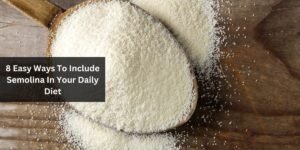Kidney stones can be excruciatingly painful, causing discomfort and disrupting daily life. However, adopting certain lifestyle changes and habits can significantly reduce the risk of developing these bothersome stones. Here are eight practical tips to help prevent kidney stones:
Stay Hydrated
Hydration plays a pivotal role in preventing kidney stones. Drinking an ample amount of water dilutes the substances in urine that lead to stone formation. Aim to drink at least 8-10 cups (64-80 ounces) of water per day. Consider carrying a reusable water bottle to ensure you stay hydrated throughout the day.
Follow a Balanced Diet
Maintaining a balanced diet is crucial for preventing kidney stones. Limiting sodium, animal proteins, and oxalate-rich foods like spinach, chocolate, and nuts can aid in reducing the risk. Opt for a diet rich in fruits, vegetables, and whole grains to promote overall kidney health.
Monitor Calcium Intake
Contrary to popular belief, consuming adequate calcium can actually help prevent kidney stones. However, it’s essential to maintain a balance. Rather than avoiding calcium, focus on getting it from food sources rather than supplements. Speak to a healthcare professional for personalized advice.
Reduce Oxalate-rich Foods
Oxalate is a compound found in many foods that can contribute to kidney stone formation. Limiting high-oxalate foods like beets, rhubarb, and certain nuts may be beneficial. However, don’t eliminate them entirely from your diet without consulting a healthcare provider.
Cut Down on Sodium
Excessive sodium intake can lead to higher calcium levels in your urine, increasing the risk of kidney stone formation. Aim to limit sodium consumption by avoiding processed foods, canned goods, and excessive salt while cooking. Opt for natural herbs and spices to flavor your meals.
Moderation in Protein Intake
Consuming too much animal protein, such as red meat, poultry, and seafood, can increase the risk of kidney stones. Aim for moderation and consider plant-based protein sources like legumes, tofu, or tempeh as alternatives.
Stay Active and Maintain a Healthy Weight
Regular physical activity not only aids in maintaining a healthy weight but also reduces the risk of kidney stones. Aim for at least 30 minutes of moderate exercise most days of the week to promote overall health and kidney function.
Seek Professional Guidance
If you have a history of kidney stones or specific health conditions, consult a healthcare professional or a registered dietitian. They can provide personalized recommendations tailored to your needs, including dietary modifications or medications to prevent stone formation.
Conclusion
Preventing kidney stones involves adopting a holistic approach that encompasses hydration, diet modifications, and lifestyle changes. By following these eight practical tips, you can significantly reduce the risk of developing kidney stones and promote overall kidney health.
FAQs:
1. Can drinking too much water lead to kidney stones?
While it’s crucial to stay hydrated, excessively consuming water beyond what your body needs may not necessarily prevent kidney stones and could potentially lead to other health issues. Stick to a balanced water intake recommended for your body.
2. Are all kidney stones caused by diet?
Diet plays a significant role in kidney stone formation, but other factors like genetics, medications, and underlying medical conditions can also contribute to their development.
3. How do I know if I’m prone to kidney stones?
Individuals with a family history of kidney stones, those with certain medical conditions like urinary tract infections or inflammatory bowel disease, and those with previous stone episodes are more prone to developing kidney stones.
4. Is it safe to follow a low-oxalate diet without medical advice?
It’s advisable to consult a healthcare professional before making significant dietary changes, including following a low-oxalate diet, to ensure it’s appropriate for your individual health needs.



